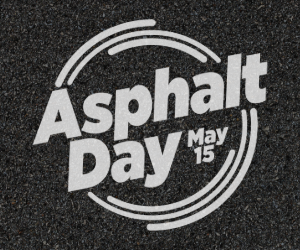 We talk with leading educators and researchers to learn more about the people and topics of asphalt technology.
We talk with leading educators and researchers to learn more about the people and topics of asphalt technology.
Dr. John E. Haddock, Ph.D., P.E. is a professor of civil engineering at Purdue University where he directs the Indiana Local Technical Assistance Program (In LTAP).
What drew you to transportation engineering?
The people I have met drew me to the field of asphalt and pavements. As a graduate student, there have been three professors that had a huge impact on my career choice. One was my thesis advisor, the second the instructor of my first asphalt class and the third my dissertation advisor. Additionally, I was awarded the Asphalt Institute Scholarship while in graduate school. Fred Fehsenfeld, Sr., who at the time was chair of the Asphalt Institute, presented the award to me. I later worked for Fred’s company.
Which are the best methods for investigating asphalt pavement rutting?
To make a forensic investigation of rutting, it is hard to beat trenching. By cutting a trench across the pavement one can very clearly see what layer or layers have failed and therefore more easily determine the solution for fixing the problem. Coring can be made to work, but it is less certain.
What is new in the study of asphalt pothole formation?
Several different mobile phone apps have been developed that allow drivers’ phones to notify agencies where a pothole might exist in a pavement. Some agencies use these to more quickly respond to possible potholes. Beyond the reactive approach to potholes, we have started to investigate the possibility of proactively determining where potholes will likely occur so those pavement areas can be fixed before a pothole appears.
Do you foresee more warranted asphalt pavements?
I wish I could say yes, but my crystal ball is too cloudy on the matter. It seems that agencies and contractors are agreeable to warranted asphalt pavements, but there are some practical challenges that need to be overcome, namely, bonding authority. Some states have developed ways around the bonding challenge, but until more workable solutions are found and agreed upon, I am not sure warranted pavements will move forward in a major way.
Where should today’s students focus their asphalt research?
I think people in the asphalt industry would agree that most of our current research is incremental; meaning that we are making small, steady improvements in materials, design and construction. I encourage today’s students to continue that trend, but to also think about transformational research, something that can completely revolutionize the industry. For example, is there some transformational way to more rapidly construct asphalt pavements that can also provide improved quality? I encourage today’s students to think beyond current practices and procedures.














